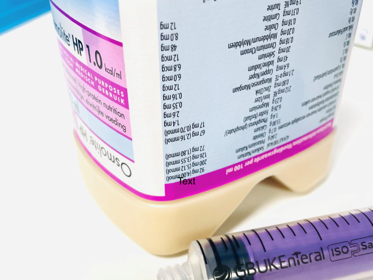Doig
Early Parenteral Nutrition in Critically Ill Patients With Short-term Relative Contraindications to Early Enteral Nutrition
Doig. JAMA. 2013;309(20):2130-2138. doi:10.1001/jama.2013.5124
Clinical Question
- In critically ill patients with relative contraindications to early enteral nutrition (EN), does providing early parenteral nutrition (PN), improve mortality?
Design
- Randomised controlled trial
- Block randomisation with variable block sizes
- Stratified by site, age and BMI
- Single-blind
- Intention to treat analysis
- Power calculation: with baseline mortality of 29.7%, a sample size of 1470 patients required to detect a 7.7% risk difference between groups, with 90% power
Setting
- 31 community and tertiary hospitals in Australasia
- October 2006 – June 2011
Population
- Inclusion criteria
- Adult patients admitted to ICU
- Considered ineligible for EN by the attending clinician due to a short-term relative contraindication
- Expected to remain in ICU for >2 days
- Exclusion criteria
- Not expected to survive 24 hours, or receiving palliative care
- Licensing contraindication to PN e.g. pregnancy, allergy
- 1372 patients randomised
- 46% Emergency Surgery
- 20% Elective Surgery
- Mean APACHE II score 21
Intervention
- Early PN (Kabiven G19%, Fresenius Kabi Australia)
- ‘Early’ defined as within 24 hours of ICU admission
- Mean time from ICU admission to randomisation was 13.8 hours
- Mean time from randomisation to PN was 44 minutes
- Energy target
- set by Harris-Benedict equation
- capped at 35kcal/kg/day
- If BMI 30+ then fed to ideal body weight (BMI = 21)
Control
- Standard care
- Not defined by protocol
- 278 (40.8%) never received EN or PN during their 3.72 (95% C.I. 2.65-5.2) ICU stay
- 199 (29.2%) started EN after 2 days (95% C.I. 1.43-2.78), of whom 48 eventually received supplemental PN
- 186 (27.3%) started PN after 2 days (95% C.I. 1.45-2.7)
- 19 (2.8%) started both EN + PN at the same time after 5.58 days (95% C,I, 3.9-7.96)
- 13 (1.9%) patients received EN, PN, or oral feed within 24 hours of ICU admission
- Overall remained unfed for mean 2.8 days (95% C.I. 2.3-3.4)
- Of note in Australasia it is NOT accepted practice to infuse isolated glucose solutions to provide caloric intake prior to initiating feeding
- Not defined by protocol
Outcome
- Primary Outcome
- 60 day mortality – no significant difference
- Secondary outcomes
- Quality of life and physical function
- RAND-36 General Health Status – significant improvement in early PN group, however, magnitude of difference did not exceed one-half the standard deviation, which was defined a priori as clinically meaningful
- ECOG performance status – no significant difference
- RAND 36 physical function – no significant difference
- Quality of life and physical function
- Tertiary Outcomes
- Length of mechanical ventilation – significantly shorter in early PN group
- ICU stay – no significant difference
- Hospital stay – no significant difference
- No differences in any types of infection
- Subgroup analysis
- No significant differences in 60 day mortality based on BMI, age or chronic insulin treated DM
Authors’ Conclusions
- The use of early PN did not result in significant differences in 60 day mortality or infection rates
Strengths
- Randomised
- Intention to treat analysis
- Multi-centre
- Early enrollement of patients (mean time from ICU admission to enrolment 13.8hrs)
- Patients treated with early PN received >90% of target feed
- Pragmatic study – comparing early parenteral nutrition with standard treatment. However, the downside of this is that standard treatment varies and this trial therefore compares it against all of these.
- Minimal exclusion criteria leading to high external validity. The downside of this is that in the control group 41% discharged from ICU within 3.72 days (95% CI, 2.65-5.20) without feeding. In these patients it may have been optimistic to hope to find a large mortality benefit. It may be that patients with more prolonged critical illness would be more likely to benefit from early PN.
Weaknesses
- Non-blinding of study intervention and outcome assessment
- In the standard care group nearly 40% of patients received parenteral nutrition, the majority within a few days. Therefore it is not surprising that there was no difference in infectious complications found
The Bottom Line
- In critically ill patients with a short-term relative contraindication to enteral nutrition, the use of early parenteral nutrition did not affect 60 day mortality or infection rates compared with starting feeding at ~3 days. I therefore won’t be in a rush to start early PN.
External Links
- [Free full-text] Early Parenteral Nutrition in Critically Ill Patients With Short-term Relative Contraindications to Early Enteral Nutrition A Randomized Controlled Trial
- [Further reading] University of Virginia journal club
- [Further reading] LITFL Nutrition summaries
- [Further reading] Critical Care Nutrition
Metadata
Summary author: @davidslessor
Summary date: 8th September 2014
Peer-review editor: @DuncanChambler




